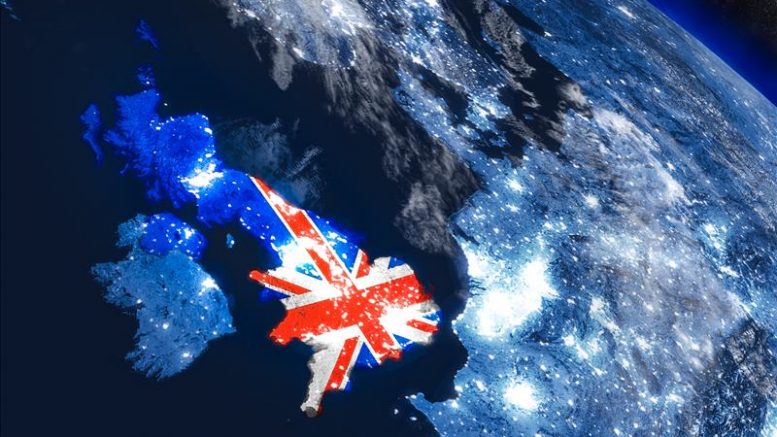A shallow stretch of water between mainland Europe and mainland UK does not separate the United Kingdom from the consequences of what happens in Europe. Whether it is a member of the EU or not Britain’s destiny will be shaped more than anything else by its geography, writes Geoff Kitney.
The Brexit vision is sold by Brexiters as being bold and ambitious, a break from the shackles of its membership of the European Union which will free Britain to become a great power again.
There is a cheer squad for this vision which hails from well beyond the borders of the United Kingdom. Some of its loudest members are senior political figures in English-speaking countries, particularly Australia.
But there is surely another way to look at Brexit and the role that Britain would play once outside the EU. For those who most strongly believe in the importance of a powerful English-speaking voice in support of Western democracy and the post-war liberal political order, Brexit can be seen as a betrayal.
It is a betrayal which defies logic and thumbs its nose at recent history. It is an act of selfish, nationalistic short-sightedness that makes a mockery of the notion of British leadership. For many people in the so-called British family of nations – the countries which had the good fortune to inherit Britain’s great parliamentary and liberal democratic traditions – the history of their British connection is written in blood.
During the 20th century vast numbers of young men and women from countries whose colonial history was based on British connections went to the aid of Britain in two great wars.
Both wars were the consequence of malignant nationalism that was deeply ingrained in the history of Europe. The soil of swathes of Europe was soaked in the blood of English-speaking soldiers who paid a terrible price for answering the call to come to the aid of Britain.
The decades of peace that Europeans have enjoyed since the defeat of Nazism owe much to the wisdom of post-war leaders who decided to create a new European architecture designed to defuse nationalism and build shared, cross-border destinies.
British enthusiasm for and involvement in this project has waxed and waned but the ideals that underpin it – parliamentary democracy, universal suffrage, individual freedom – are profoundly British.
British common sense has been hijacked by people whose view of Britain’s place in Europe is distorted by a sense of nationalistic superiority and disdain for Europeans. Snobbery, even.
Once Britain decided to formally join the project by taking up membership of the European Economic Community and then the European Union it contributed mightily to the consolidation and expansion of the concept of shared responsibility for maintaining and increasing European unity and prosperity. The British voice at the table of European decision making was a powerful voice for common sense and realism.
A German friend with powerful connections to the highest levels of political decision makers tells me that he is deeply grateful for the role Britain has played in Europe. But he says he is dismayed that Britain has voted to leave the EU.
“I cannot understand this decision. It makes no sense for Britain or for Europe. I can understand why some people might believe that Britain doesn’t need Europe. There are many frustrations with being one of 28 voices around the table and with having to accept collective decisions. But Europe does need Britain, even if it says it doesn’t,” he said.
“Sensible people inside the EU know to lose British common sense and wise counsel will be a bad thing.”
He is not alone in this view. I have heard similar sentiments expressed by acquaintances in a number of European countries.
And the common view among them is that British common sense has been hijacked by people whose view of Britain’s place in Europe is distorted by a sense of nationalistic superiority and disdain for Europeans. Snobbery, even.
The justification for Brexit is “reclaiming sovereignty”.
It is beyond comprehension that anyone would believe that by quitting the EU and reclaiming its sovereignty and determining its own destiny, the UK will somehow free itself from its “European-ness”.
The evidence offered in support of the case for leaving the EU is the fact that the citizens of the United Kingdom have to abide by rules of membership which limit the UK’s ability to control vital national interests. Brexit will mean that Britain can regain control of its own destiny.
But – whether it is a member of the EU or not – Britain’s destiny will be shaped more than anything else by its geography.
As much as some English nationalists, in particular, hate the idea of being regarded as European, the UK is part of Europe. A shallow stretch of water between mainland Europe and mainland UK does not separate the United Kingdom from the consequences of what happens in Europe.
The flesh and blood of well over a million Britons is melded into European soil as a consequence of events in Europe which Britain’s geography made it impossible to avoid. This is a profound matter of shared sovereignty going far beyond any law or regulation which Britain’s membership of the EU imposes upon it.
It is hard to comprehend how so many Brexiters are blind to this reality of Britain’s history and its geography. It is beyond comprehension that anyone would believe that by quitting the EU and reclaiming its sovereignty and determining its own destiny, the UK will somehow free itself from its “European-ness”.
The argument of Brexiters is that the EU is on a course to become an undemocratic federal state run by unelected bureaucratic gnomes in Brussels and they want no part of it.
So their answer is to quit, rather than shoulder the responsibility of remaining inside and using the UK’s power and influence to fight for a Europe which is democratic and accountable, and which puts at the centre of its charter avoiding the mistakes which led to so much bloodshed in the 20th century.
In fact, the idea that Britain would want to break from Europe as the volume of rising nationalism and right-wing extremism grows louder by the day seems to fly in the face of the lessons of history so painfully learned in the 20th century.
To people in countries like Australia who feel that their connection to Europe is through Britain, Brexit is effectively saying to them: “We don’t care about you and your interests. Our sovereignty is all that matters”.
Such a shrinking vision is not only disappointing, it’s alarming. Loss of the English voice with British accents in the corridors of power in Europe will be not only a loss for Europe but for all those who believe in, and have fought to defend and promote, the great values for which Britain has long been such a reliable standard bearer.

Headline image credit: Harvepino/Shutterstock.com




